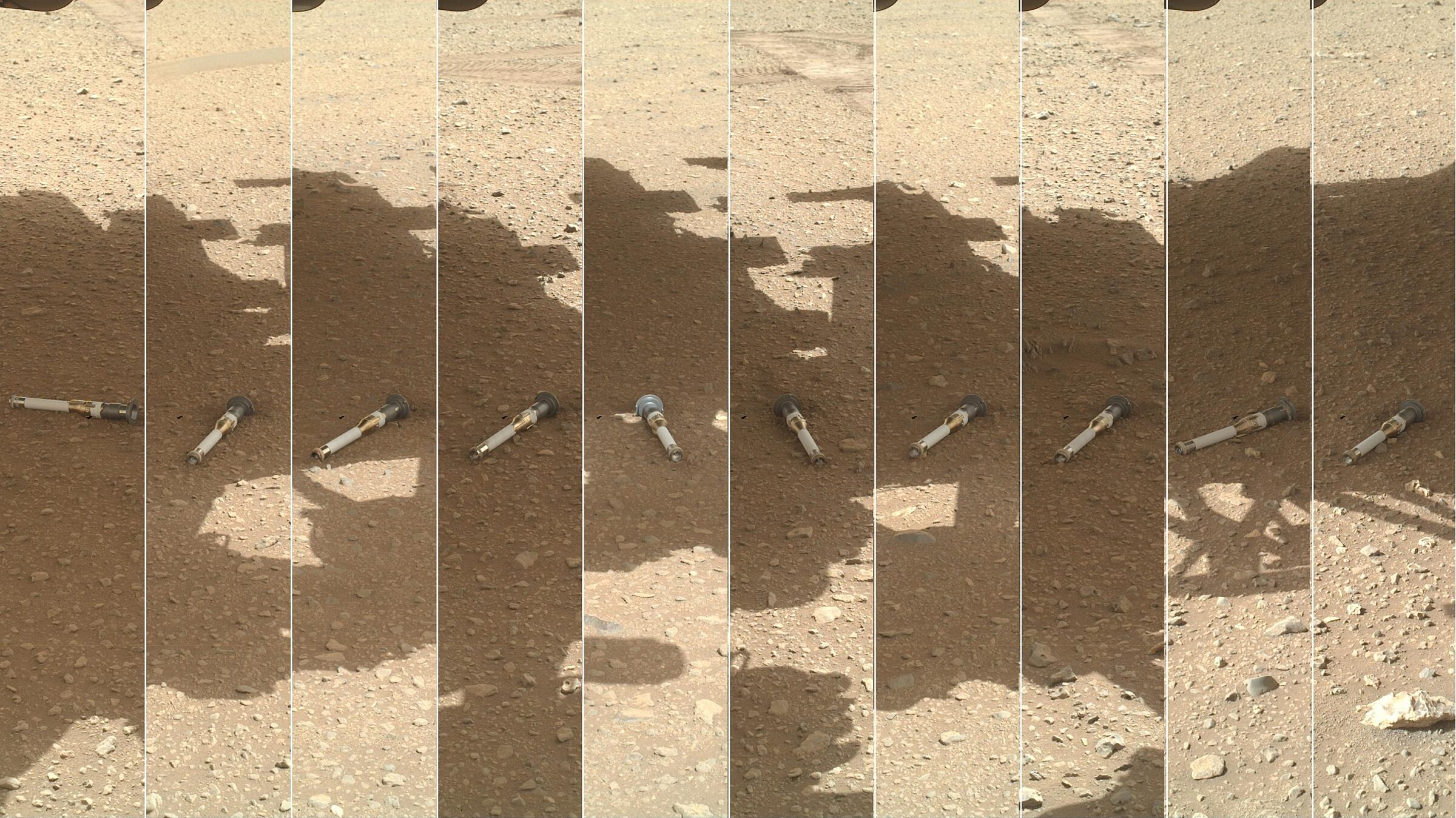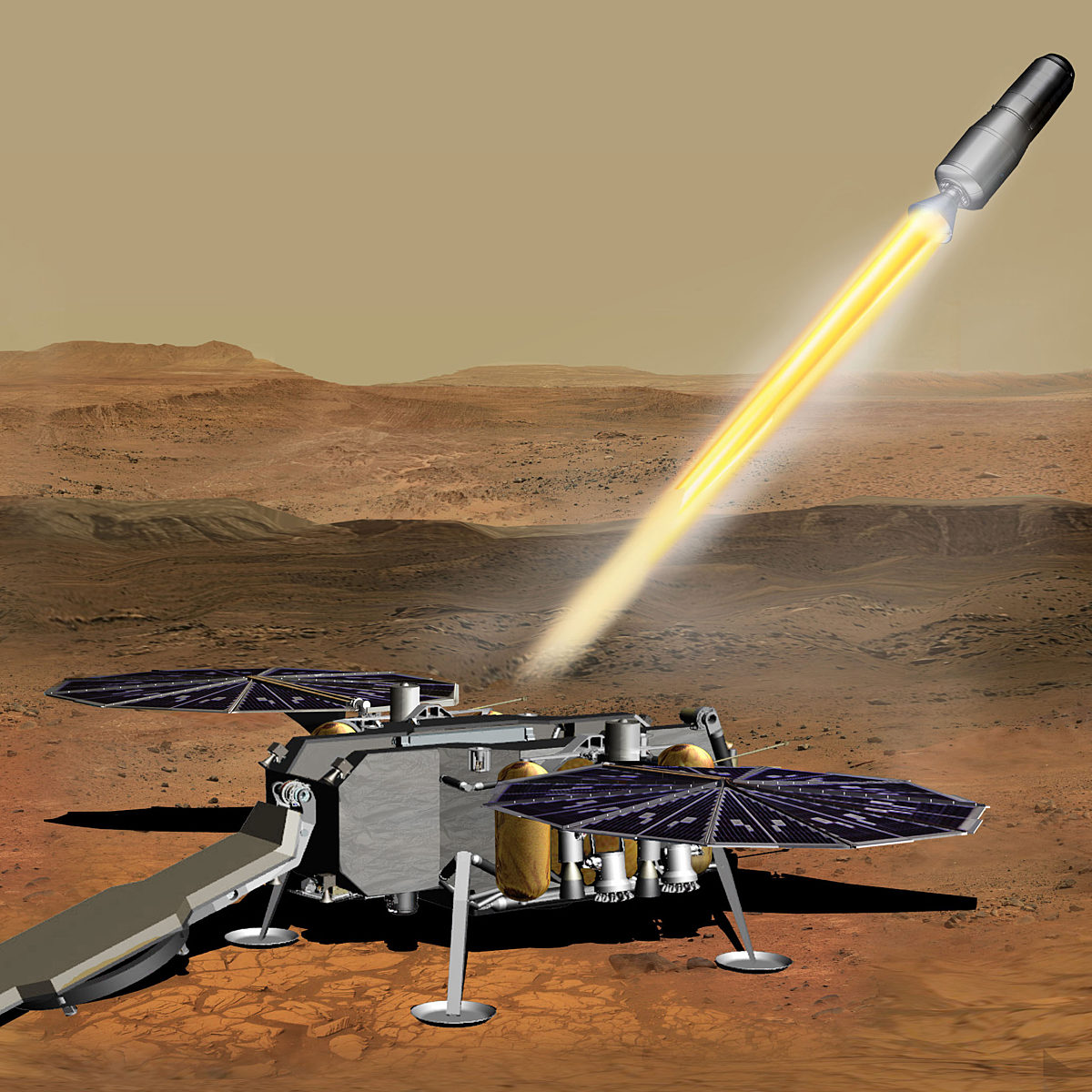Casey Dreier • Jul 19, 2023
The U.S. Senate threatens to cancel Mars Sample Return
The House has yet to weigh in
The U.S. Senate has thrown down a challenge to NASA’s beleaguered Mars Sample Return (MSR) campaign: stay on budget or consider yourself cancelled.
The chamber’s fiscal year 2024 budget for NASA, which passed the appropriations committee on July 13, also proposes to cut up to $522 million from MSR next year. In its explanatory statement, the Senate committee said that if NASA was unable to come up with a plan in six months that would contain MSR to a lifetime cost of $5.3 billion, then the remaining $300 million appropriation would be carved up and fed to other programs, primarily Artemis. Only a token amount would be redirected to other planetary missions.
While there has been concern that MSR’s growing costs will crowd out other planetary science missions in the coming decade, it is notable that the Senate’s evisceration of MSR yields no benefit to any other planetary mission. VERITAS, currently under an indefinite delay, receives no additional funding; neither does Dragonfly. Fundamental science research funding goes unmentioned. Every other NASA science directorate would see a small boost, in the tens of millions of dollars. But the overwhelming majority of MSR’s budget cut simply disappears from NASA’s science directorate. The Senate has made this much clear: cutting MSR will not save any other planetary missions. Any scraps it leaves behind would be primarily fed to the Artemis lunar return campaign.
Much has to happen before this threat fully materializes. This includes the release of details from the U.S. House of Representatives’ NASA budget, which historically has been much more favorable to planetary science and NASA’s Mars program. At the time of writing (mid-July) the House had only released the more generic bill text and had not yet passed the bill by the full committee. If the House ends up supporting MSR, it will represent a serious gap between the two chambers that must be resolved before a final congressional vote to approve NASA’s spending next year.
This alignment is known as reconciliation, and there will be many contention issues at play beyond a potential disagreement on MSR. Hot-button political issues in the Justice Department (which shares the same congressional appropriations subcommittee as NASA) present serious challenges to passage, not to mention significant spending cuts levied against other entities such as NOAA and the Commerce Department.

If Congress is unable to sort out its differences, NASA and many other agencies will be subject to a continuing resolution next year, which extends current funding levels from 2023. If this is the case by January, all agencies will be subject to a 1% across-the-board spending reduction — an outcome of the recent debt limit deal.
Ironically, a continuing resolution may actually work in MSR’s favor: under such conditions, the government cannot cancel any existing programs; the mission would continue. MSR would retain access to its FY2023 funding level of $822 million and, depending on how highly NASA’s administration prizes the mission, could gain modest additional amounts by moving money around within its science accounts.
Regardless, this level of uncertainty is not good for any mission, much less the most ambitious Mars mission of all time. An independent review board is currently assessing the feasibility of the project and is doubtless aware of the Senate’s demands. Their report, due in September, will almost certainly decide the fate of Perseverance’s cache of martian samples, already collected, patiently awaiting a trip to Earth.
If you support Mars Sample Return, The Planetary Society has a letter you can send to Congress right now, which addresses the current situation in the Senate.
NASA's FY 2024 Budget
The White House proposed $27.2 billion for NASA in 2024. Instead, Congress provided NASA with $24.875 billion.
Mars Sample Return, an international project to bring Mars to Earth
Despite advances in space technology, certain science questions, including whether or not a Mars rock contains signs of ancient life, can only be answered in Earth-based laboratories.
Support our core enterprises
Your support powers our mission to explore worlds, find life, and defend Earth. You make all the difference when you make a gift. Give today!
Donate

 Explore Worlds
Explore Worlds Find Life
Find Life Defend Earth
Defend Earth




